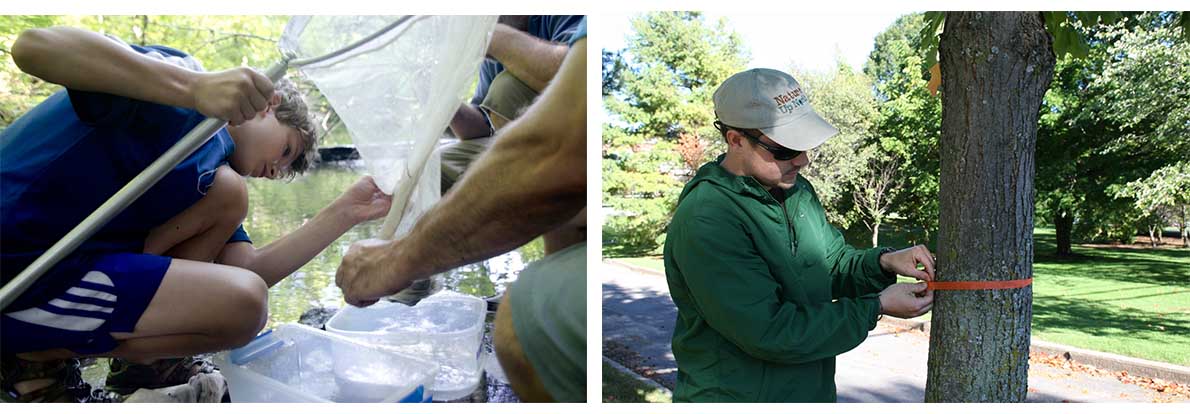
Maybe you're wondering, "What is citizen science, anyway?" Citizen science projects engage community volunteer scientists with scientific questions to help collect data that is meaningful for local and global communities. For example, you may have heard of the Audubon Society's annual Christmas Bird Count, in which bird-watchers team up to record bird observations in December of each year and share their observations with scientists. The scientists, in turn, learn a great deal about the status of bird populations throughout their ranges and that information can be used to help manage at-risk species.
Citizen science projects have a number of benefits, not only for the communities in which they occur, but also for the participants. These benefits include:
- Contributing to research that adds to our understanding of important local and global issues such as climate change, invasive species, forest health, and more
- Getting outdoors and learning about the ecosystem around you
- Learning about the scientific process by doing it yourself
- Helping communities address shortcomings in regulation and natural resource management through monitoring water and air quality
- Potential to involve K-12 students in authentic scientific studies. Nature Up North engages local students in collecting environmental data, so that teachers can build local knowledge into their classes and students can participate in authentic scientific research projects of relevance in our community.
Here at Nature Up North, our particular scientific interests lie in Phenology, also known as the "timing of natural events." Phenology touches everything, from birds migrating to trees leafing out to farmers deciding when to plant. By participating, you can contribute to a growing body of knowledge on the species that make our North Country backyard special. We may launch other citizen science projects at a future date, and will announce them on this page.
Our flagship citizen science project focuses on sugar maples. Iconic North Country trees with considerable economic importance in our region, sugar maples are also predicted to suffer the impacts of climate change. The data you contribute will help us track the status of maple trees in our region. Learn more about sugar maples in our region here, and check out our Monitor My Maple Homepage for more information on the project.
